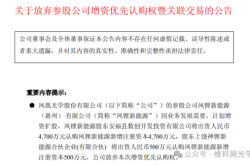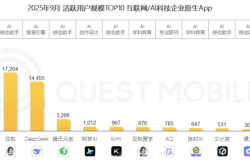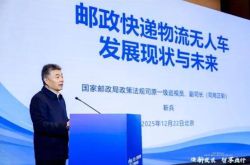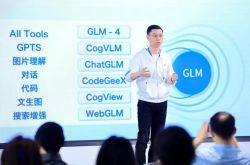Why is the key to AI landing in industry in Baidu's hands?
![]() 09/27 2024
09/27 2024
![]() 617
617

Produced by | Entrepreneurship Frontline
Art Director | Qian Qian
Auditor | Song Wen
On September 25, at the 2024 Baidu Cloud Intelligence Conference, the three-month-long Baidu “Wenxin Cup” Entrepreneurship Competition - Season 2 came to a close. After rounds of screening, a number of outstanding AI applications emerged.
These enterprises are built on the rapid iteration of AI infrastructure. Large model vendors, represented by Baidu, are playing an increasingly important role in this field.
The improvement of large model AI infrastructure provides strong support for the upgrading and iteration of large model technology and is driving industry applications forward. A common goal shared by large model vendors, led by Baidu, is clear: large models, as the foundation, are bringing cutting-edge technology to industrial scenarios and creating real value.
The landing application of the industrial chain urgently needs an explosion. As a partner for entrepreneurs, developers, and customers, Baidu has been relentlessly promoting the prosperity of global AI native applications and co-creating a large model ecosystem. Although there is no consensus in the industry yet, Baidu firmly believes that agents are the core development direction of AI native applications.
In his speech at this season's Wenxin Cup Entrepreneurship Competition, Baidu founder Li Yanhong described agents in this way: agents are equivalent to websites in the PC era and accounts in the era of self-media. Their most notable feature is that the threshold is low enough for anyone to get started, but the ceiling is high enough to create very complex and powerful applications.
Thus, with agents as the spearhead, Baidu is building a new bridge between large models, terminals, and users. The innovative AI projects and startups selected in the “Wenxin Cup” Entrepreneurship Competition are working with Baidu to get the flywheel of agents spinning.
1. Agents: A Key to AI Landing in Industry
From the rapid development of AI large models to the fierce competition of the "Hundred Models War," large models are now moving from "parameter competition" to "application competition," and all industries are exploring new carriers for applications.
This is an inevitable trend. With the maturity of large model technology, application landing is the key factor in measuring the value of technology. Moreover, applications are the important path for technology commercialization, which can bring more direct returns to enterprises.
Compared to the high investment and technical requirements of underlying large models, application startups have a lower threshold and a larger market. Companies with basic AI models cannot dominate the entire AI application market. In other words, this market urgently needs the participation of entrepreneurs.
According to Quantum Bit Intelligence, China's AIGC application market is expected to reach 20 billion yuan in 2024. By 2030, China's AIGC applications will become a trillion-yuan market, with an average compound annual growth rate of over 30% in five years (2024-2028).
In the AI application market, what large model vendors should and need to do is help entrepreneurs break through the barriers to landing large model technology, which is also the direction that Baidu has been striving for.
For entrepreneurs, using third-party basic large models to develop their own applications can achieve low-cost entrepreneurship. For large model vendors like Baidu, the more entrepreneurs use Baidu's AI large models to develop AI applications, the more they can build an AI application ecosystem with Baidu.
From the perspective of entrepreneurs and the industry ecosystem, Baidu has always been trying to lower the threshold for AI application startups as much as possible. AI agents are one of the core directions.
Simply put, an AI agent is a software or hardware entity with a certain degree of autonomy, capable of perception, decision-making, action, etc. Previously, in an interview, Li Yanhong described the dual characteristics of agents' low threshold and strong effectiveness in this way: "Today, most AI native applications can be created using agents, and the threshold is low enough that you may not even need to program."
A data point that demonstrates the effectiveness of agents is that in June of this year, Baidu launched the "Gaokao Agent," aiming to meet the individual needs of different candidates and help them choose universities and majors. According to data, after the college entrance examination, the daily active users of this agent peaked at nearly 2 million.
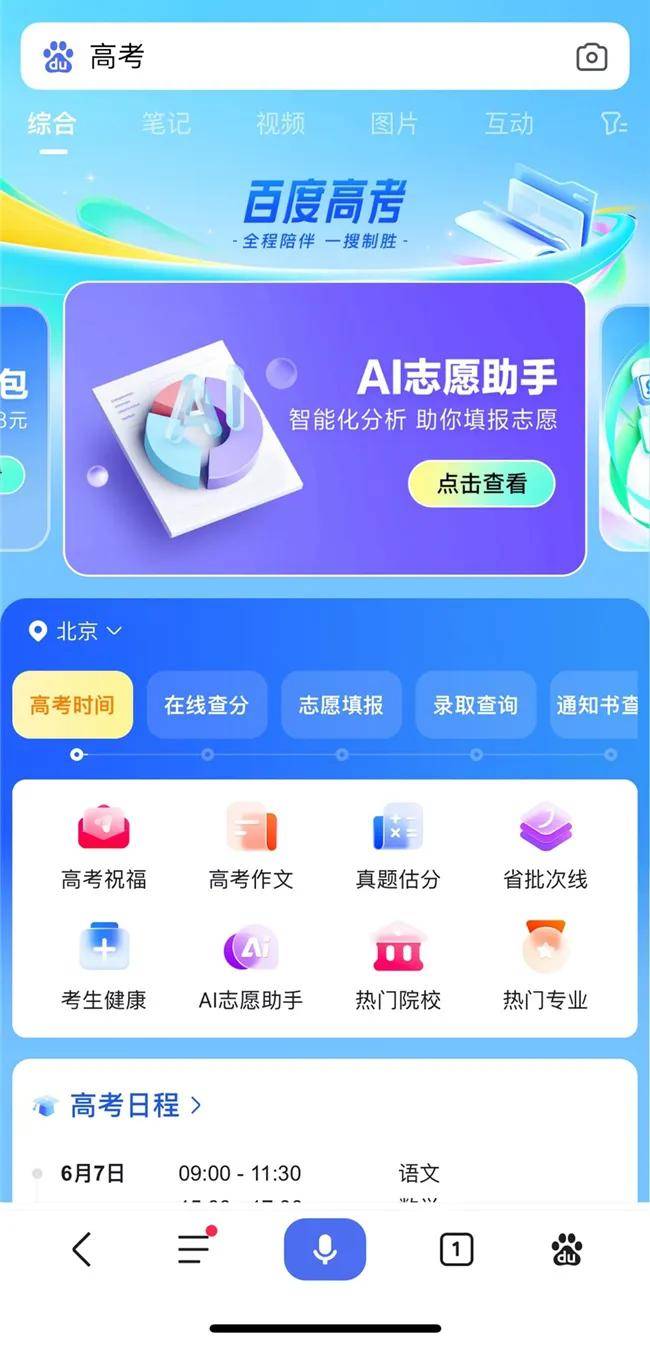
Due to their low threshold and high effectiveness, there are now 16,000 merchants developing agents on Baidu, covering industries such as education, law, and B2B.
Today, entrepreneurs in AI applications are gradually realizing that agents are the "key" to AI landing in industry. In this year's Wenxin Cup Entrepreneurship Competition, over 60% of participating teams focused on agent applications, and over 30% of participating teams did not have professional programmers.
To better help entrepreneurs use the "key" of agents, Baidu is currently proposing a series of specific measures to support them, lower the threshold for developers, and promote the improvement of the AI agent ecosystem.
2. Bring AI to the Common People
At the 2024 Baidu Cloud Intelligence Conference, the results of the second season of the "Wenxin Cup" Entrepreneurship Competition were announced. After layers of evaluation and selection, 8 teams emerged from nearly 1,600 entries to advance to the semi-finals.
The 8 award-winning projects cover various industries such as e-commerce, social networking, entertainment, education, medicine, finance, and design. Kotoko, a virtual character social interaction platform, is one of them.
Founded in 2023, Kotoko focuses on AI social networking, built on AI-Native social games (AI-version of The Sims). Here, users can create personalized AI characters. Kotoko's founder and CEO, Qiao Haixin, said that Kotoko provides a virtual social experience, with AI technology as the underlying capability.
In exploring their product, Qiao Haixin and his team found that in the critical aspects of social networking, such as initiating a relationship, starting a conversation, or organizing an event, each can be embodied as an Agent. In other words, in the underlying logic of Kotoko's product, Agents are the carriers for character construction, environment construction, and character interaction. Ultimately, the connections between these Agents form the core gameplay of the game.
The Agents built by Kotoko at the underlying level are compatible with the agent development ecosystem built by Baidu. Qiao Haixin told "Jiemian News·Entrepreneurship Frontline" that Kotoko and Baidu will collaborate on Agents in the future.
Startups like Kotoko are currently exploring within Baidu's agent ecosystem. To help entrepreneurs, Baidu has been improving the technical and commercial infrastructure for agents.
In late 2018, Baidu began research and development of large model technology. In March 2019, it officially released Wenxin Large Model 1.0, and in June of this year, it released Wenxin Large Model 4.0 Turbo. To enable industrial application scenarios, Baidu continues to provide a solid technical foundation for enterprises to develop AI applications such as agents.
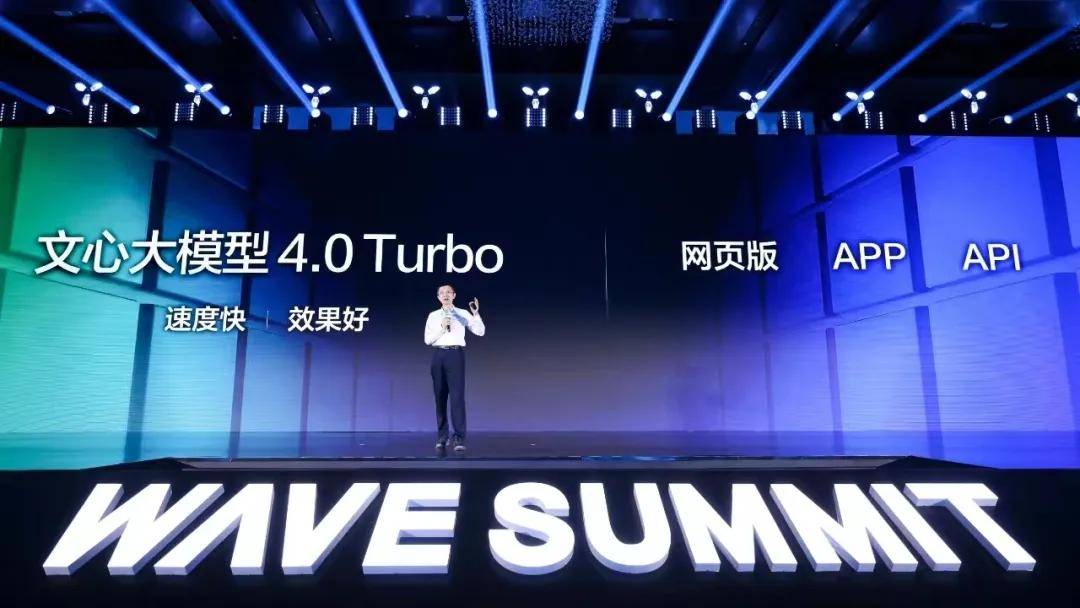
Shen Dou, Executive Vice President of Baidu Group and President of Baidu Intelligent Cloud Business Group, mentioned at the 2024 Baidu Cloud Intelligence Conference that large models and their supporting computing power management platforms, model and application development platforms are becoming a new generation of infrastructure.
Among them, the Wenxin Agent Platform is a "creation tool" for agent applications built by Baidu for entrepreneurs. In terms of agent development logic, Baidu's Agent Platform minimizes the development threshold, leveraging its powerful data processing capabilities, rich AI application scenario support, and efficient development tools to reduce the development threshold, already enabling "one-sentence development of agents."
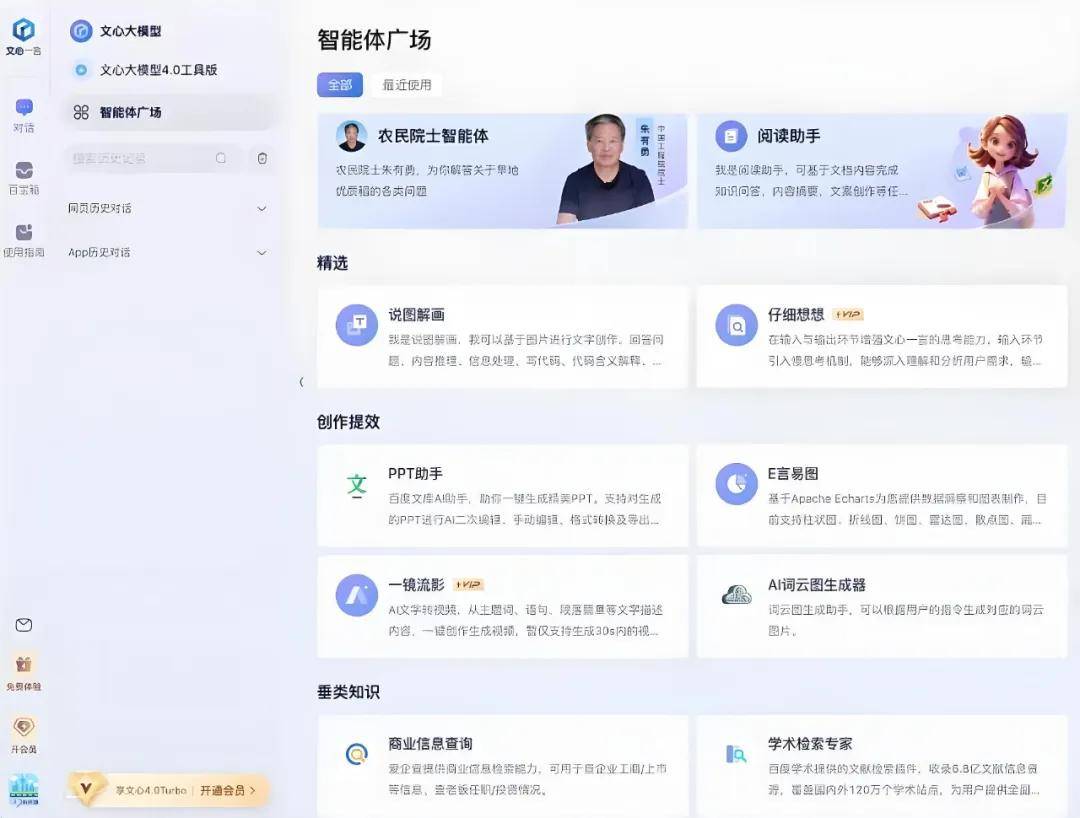
According to the latest QuestMobile report, Baidu's Wenxin Agent Platform has become an agent creation platform with commercialization capabilities and is the most comprehensive platform, supporting capabilities such as knowledge bases, workflows, voice, different models, plugins, internet searches, digital avatars, and commercialization.
Therefore, in this competition, not only award-winning projects like Kotoko receive support from Baidu, but Baidu's ecosystem capabilities have also become the underlying support for many startup projects.
When the underlying support is generalized, the threshold for agents is removed, and AI can truly open the path from "mystery" to "reality."
3. From Technology to Ecosystem to Commercialization
Since 2013, Baidu has been laying out AI-related technologies. As one of the earliest giants in China to deploy AI technology, Baidu has laid a solid AI foundation over the past decade.
Qiao Haixin told "Jiemian News·Entrepreneurship Frontline" that the technical strength of Baidu's Wenxin Large Model is beyond doubt, and even today, Baidu continues to iterate on the construction of underlying large models.
But this is not all that Baidu does. Today, Baidu is deeply involved in various industries, empowering the entire life cycle of agents. Relying on the power of Baidu Search, Baidu is distributing the agents created by developers to user needs.
According to Baidu's Q2 financial report, Baidu APP had 703 million monthly active users in June 2024. Relying on the massive user base of Baidu Search, distribution to users is a natural outcome.
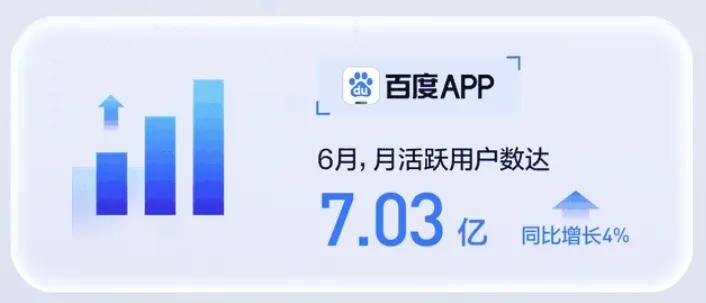
On this basis, Baidu has built a natural agent distribution pool for entrepreneurs, represented by search. It is understood that the Wenxin Agent Platform not only supports multi-terminal and multi-scenario distribution of agents within Baidu's domains, such as Wenxiaoyan APP, Baidu Post Bar, and Xiaodu, but also supports templated access through APIs, SDKs, and other forms to connect independent apps, WeChat Mini Programs, and sites outside of Baidu's domain.
Multiple data points demonstrate the extensiveness of Baidu's agent distribution. In August of this year, the daily distribution volume of Baidu agents exceeded 10 million, with Wenxiaoyan APP, as an important distribution field, having over 10 million monthly active users. This is a unique capability and characteristic of Baidu. At the commercial level, it enables more agents to be seen by users through the transformative power of search.
At the same time, for Baidu, as the agent ecosystem further enriches, agents will have better collaboration capabilities. When agents are deployed in scenario collaboration, they are expected to further evolve, which is also a key force in the transformation of search.
In Qiao Haixin's view, startups in Baidu's ecosystem can receive sufficient support in areas such as commercialization and technology. Baidu is leading entrepreneurs into a new ecosystem.
Since the AI large model craze began, Baidu has been paving the way for the next AI era.
On the one hand, it has proactively led technological breakthroughs, and on the other hand, it has proactively sought out more "like-minded individuals" through the "Wenxin Cup" Entrepreneurship Competition, providing them with long-term support in terms of technology, products, development strategies, capital cooperation, and more, creating "overtaking" opportunities for more startups.
An even more prominent feature is that compared to the first season, the number of entrepreneurs participating in the second season of the "Wenxin Cup" Entrepreneurship Competition has increased dramatically, and the directions in which entrepreneurs are participating in startups have become more diverse. Teams also exhibit the characteristics of being "younger" and "elite," with a large number of outstanding entrepreneurs gathering here.
Perhaps this is precisely Baidu's key milestone in the era of "All in AI": amidst generational technological opportunities, as the native application ecosystem of large models is built, it will usher in a new era of explosive agent dividends.
*Note: The cover image in this article is from Shutterstock, based on the VRF agreement.

